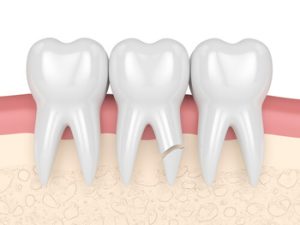Have you ever woken up to a throbbing, shooting pain in your tooth that makes you wince with every breath? Yeah, us, too. Nerve pain in tooth is no joke! It can turn the simplest tasks, like eating or talking, into nightmares. Lo and behold, we have some good news! This article is your knight in shining armour to shed light on the mysteries of tooth nerve pain.
We’ll explore the sneaky culprits behind the ouch, from those pesky cavities to surprising dental dramas. We’ll also unveil the best battle plans to fight back with dentist-approved treatments and handy home remedies (think cold compresses, not courage!). Most importantly, we’ll share some secret weapons for building a fortress that safeguards your pearly whites so you can keep those nasty nerve pains at bay.
So, grab your metaphorical sword and shield (or maybe a fluffy towel and some pain relievers), and let’s conquer this toothache together!
Cracking The Code: What Exactly Is Nerve Pain In A Tooth?
Imagine this: you’re enjoying a delicious ice cream cone, savouring the sweet coolness. Suddenly, a jolt of pain shoots through your tooth, sharp enough to make you wince. Ouch! That, my friend, is likely nerve pain in a tooth making an unwelcome appearance.

When things go wrong in this tiny apartment—maybe a cavity starts drilling through the walls, or an accident cracks the foundation—those nerves get irritated. Like stubbing your toe, they send an SOS signal to your brain, and oops! You experience that sharp, throbbing pain we know as a toothache.
Tooth Pain Triggers: Why Your Tooth Is Throwing A Tantrum
Have you ever noticed your teeth acting up only at certain times? Maybe it throws a full tantrum when you indulge in a steaming cup of coffee, or it starts throbbing when you bite down on a piece of candy. Well, those might be clues to what’s triggering your tooth pain! Like a grumpy toddler, certain things can upset your teeth. Here’s a peek at some common tooth pain triggers that might be setting your smile off:
Tooth Decay (Dental Caries)
Remember that delicious ice cream cone from earlier? Well, it turns out those sugary treats your taste buds love can wreak havoc on your teeth. Sugar feeds the party-loving bacteria in your mouth, producing acid that attacks your tooth’s enamel. This weakens the enamel, making it easier for irritation to reach those sensitive nerves and trigger a pain response. So, while that candy bar might be calling your name, it’s best to enjoy it in moderation to keep your tooth happy.
Tooth Infection (Abscess)
Sometimes, a tooth infection can take root (pun intended) and form an abscess, a pus-filled pocket that’s no fun for anyone. This abscess can put pressure on your tooth’s nerves, leading to serious pain and swelling. Think of it as a squatty, uninvited guest in your dental apartment building, causing a huge uproar!
Dental Trauma
Accidents happen, and sometimes, those accidents involve bumping or cracking your tooth. This trauma can damage the nerves, leading to immediate or delayed pain. It’s like a surprise attack on your tooth’s structural integrity!
Gum Disease
Healthy gums are essential for happy teeth. But when gum disease sets in, it can inflame and damage the tissues that support teeth. This inflammation can irritate the nerves and cause tooth sensitivity or pain like a grumpy landlord making things difficult for your pearly white tenants.
Tooth Sensitivity
This isn’t quite a full-blown tantrum, but tooth sensitivity can still be a real pain (literally!). Exposed dentin (the layer beneath your enamel) due to receding gums, worn enamel, or aggressive brushing can make your teeth hypersensitive to hot, cold, sweet, or acidic foods and drinks. Think of it as your teeth being a little too high-strung!
Tooth Pain Today, Bigger Problems Tomorrow: Why Ignoring Nerve Tooth Pain Can Cost You
Let’s be honest: ignoring a problem rarely makes it disappear, especially when it comes to toothaches. That dull throb or sharp jab in your tooth might seem a minor annoyance today. But trust us, it’s throwing some serious shade at your future oral health. Here’s why silencing that toothache alarm with an extra-strength pain reliever isn’t the best long-term strategy:
Severe Pain And Discomfort
Think of that initial nerve pain as a warning light on your dental dashboard. Ignoring it won’t make the underlying issue go away, and chances are, the pain will only intensify. What started as a dull ache could morph into a throbbing nightmare that could lead to tooth nerve damage, making it difficult to eat, sleep, or even concentrate.
Spread Of Infection
A neglected toothache often signifies a deeper problem, like a cavity or infection. The longer you wait, the more opportunity that nasty infection has to spread. It can travel from your tooth to your jawbone, gums, and even your bloodstream, leading to serious health complications. Think of it like a tiny spark turning into a raging inferno—the longer you wait, the harder it is to control!
Tooth Loss
Ignoring a painful tooth can eventually lead to tooth loss. Think about it—a severely infected or damaged tooth can become weak and loose, eventually succumbing to the inevitable. Not only is losing a tooth a pain (literally!), but it can also impact your ability to chew properly and affect your confidence in your smile.
Soothe The Sting: At-Home Fixes For Nerve Pain Relief
Alright, we’ve painted a pretty clear picture of why ignoring a toothache is a recipe for disaster. But let’s face it, sometimes a trip to the dentist can’t happen immediately. Life throws curveballs, and you might need temporary relief until you see your dental superhero. Here are a few at-home fixes to soothe that nerve pain and help you weather the storm:
Over-The-Counter Pain Relievers
Over-the-counter pain relievers can be your knights in shining armour, offering temporary relief from that throbbing pain. Think of them as taking the edge off the situation while you wait for your dental cavalry to arrive.
Cold Compress
Inflammation is often the culprit behind toothaches. To reduce inflammation and numb the area, grab a trusty cold compress and apply it gently to your cheek near the affected tooth. Imagine the coolness as a soothing wave washing over your dental woes.
Rinsing With Warm Salt Water
A warm salt water rinse can be a simple yet efficient way to cleanse your mouth and potentially reduce inflammation. Think of it as giving your mouth a mini-spa treatment to help ease the discomfort.
Clove Oil (Use With Caution)
Clove oil has natural numbing properties that can temporarily relieve tooth pain. However, a word of caution: use clove oil sparingly and dilute it with a carrier oil like coconut oil before applying it with a cotton swab to the affected area. Clove oil can irritate the gums if used directly.
Beyond The Band-Aid: Getting To The Root Of Your Toothache
You’ve tried the cold compress, the pain relievers, and maybe even a clove oil dance, but the throbbing pain persists. It’s like a stubborn weed in your dental garden, refusing to be budged. Here’s where your dentist comes in, wielding the tools to soothe the surface pain and to evict the culprit causing the trouble truly.
Think of your dentist as a dental detective. They’ll use X-rays and other sleuthing techniques to identify the root cause of your toothache—whether it’s a cavity monster hiding deep within, an abscessed villain wreaking havoc, or gum disease gremlins causing irritation. Once they’ve identified the dental drama queen, they can unleash their arsenal of dental weaponry to banish the pain for good. Here’s a peek at some of the treatments your dentist might recommend:
- Fillings: For cavities that haven’t reached the pulp, a filling acts like a dental shield, patching up the hole and preventing further damage. This not only stops the pain but also keeps those cavity monsters at bay.
- Root Canal: If the infection has reached the pulp, a root canal might be necessary. Think of it as a deep clean for the inside of your tooth, removing the infected material and sealing things up tight. No more pain parties for those nasty bacteria!
- Crowns: For severely damaged teeth, a crown might be needed to restore strength and function. Imagine a tiny, super-strong hat protecting your tooth from future threats and keeping the pain monster locked away.
- Tooth Extraction: In some cases, if the tooth is severely deteriorated or infected and needs to be saved, extraction might be the only option. While losing a tooth isn’t ideal, it’s sometimes necessary to prevent further problems and pave the way for potential replacements like implants.
Frequently Asked Questions (FAQs)
What does nerve pain in a tooth feel like?
Nerve pain in a tooth can manifest in various ways, including a sharp, throbbing pain, a dull ache, or a shooting pain. It can be constant or come and go, and it might be triggered by hot, cold, sweet, or acidic stimuli.
How long does nerve pain in a tooth last?
The duration of nerve pain depends on the underlying cause. Pain caused by minor irritation might subside within a day or two. However, pain from a deeper issue like an abscessed tooth will persist until treated by a dentist.
Can antibiotics cure nerve pain in a tooth?
Antibiotics can help treat a dental infection that’s causing the nerve pain. However, they won’t address the root cause of the infection, such as a cavity. You’ll likely need additional dental procedures to permanently resolve the pain.
Smile Brightly, Live Happily: Final Thoughts On Keeping Your Teeth Healthy

Contact Finesse Dental, Stanhope Gardens, NSW 2768, today at (02) 8806 0790 to treat your nerve pain once and for all.
Note: Any surgical or invasive procedure carries risks. Before proceeding, you should seek a second opinion from an appropriately qualified health practitioner.
Sources:
Bender, I. B. “Pulpal Pain Diagnosis—A Review.” Journal of Endodontics, vol. 26, no. 3, Mar. 2000, pp. 175–79. https://doi.org/10.1097/00004770-200003000-00012.
Cronkleton, Emily. “11 Home and Natural Remedies for Toothache Pain.” Healthline, 13 Sept. 2023, www.healthline.com/health/dental-and-oral-health/home-remedies-for-toothache.
Hennessy, Bernard J. “Toothache and Infection.” MSD Manual Professional Edition, 9 Jan. 2024, www.msdmanuals.com/professional/dental-disorders/symptoms-of-dental-and-oral-disorders/toothache-and-infection.
Roberts, By Michelle. “‘Ice-cream Toothache’: Cold Food and Drinks Pain Explained.” BBC, 27 Mar. 2021, www.bbc.com/news/health-56536300.
“Tooth Nerve Pain: Causes, Pain Relief, and Home Remedies.” Crest, crest.com/en-us/oral-care-tips/toothache/tooth-nerve-pain-causes-pain-relief-home-remedies.


